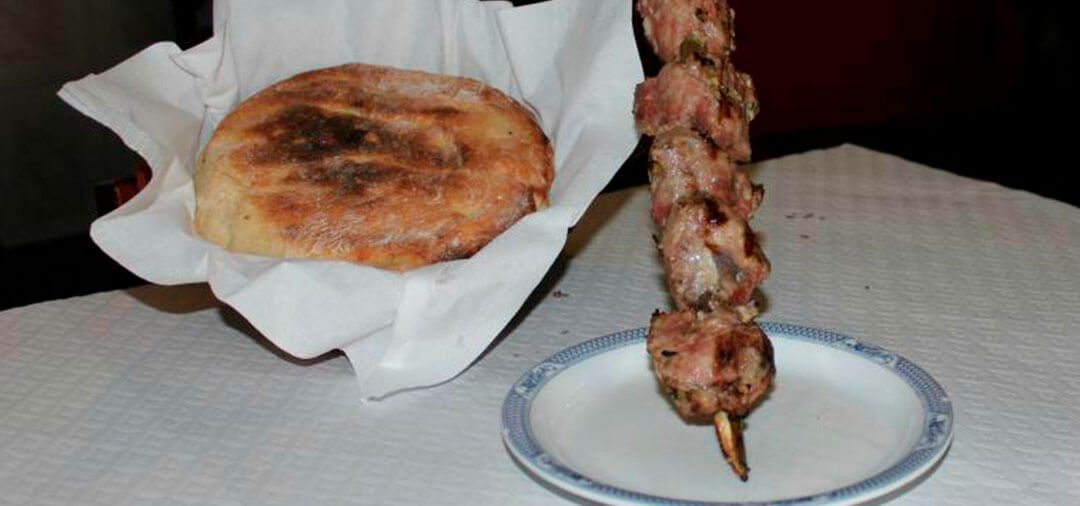One thing can be said about the cuisine of the Madeira Island in Portugal; the dishes are natural, healthy and constantly fresh due to the island’s fertile lands. The Madeirenses are fond of mixing local herbs with Madeiran wine, garlic, olive oil and other spices that result to a gastronomical delight that could entice even the pickiest eater. They love meat; pork, beef, chicken, goat and rabbit and with a recipe or two for these grubs. Due to the lucrative fishing industry, bluefin tuna and scabbard fish which is abundant in Madeira is always fresh and part of every meal. Each location offers something different with an ambience conducive to eating. Be it a restaurant by the sea, in busy city centres or in the countryside, the dining experience is invariably new every time. It is also common to include local fruits in various dishes.
Madeira is divided into 11 municipalities; Funchal (which is also the island’s capital), Machico, Câmara de Lobos, Calheta, Santana, Santa Cruz, São Vicente, Porto Moniz, Ponta do Sol, Ribeira Brava and the neighbouring island, Porto Santo, any of these towns offer numerous quality seafood restaurants, steakhouses, cafés, snack bars, pubs and bars that make eating in Madeira a versatile experience. The island even has two Michelin starred restaurants, The Il Gallo d’Ouro and the William Restaurant if desiring a fine dining experience.
Even the most simple dishes are full of flavour and visually appealing with its colourful ingredients. There are dishes that are traditional and customary to serve during festivals, with every restaurant in Madeira including these courses in the menu. Urbanized municipalities have restaurants specialising in regional, Portuguese and even international foods to better cater to tourists who visit the island annually. As for the northern part of the island, food business establishments tend to serve basic and traditional recipes, especially those with fixings that are grown in the surrounding area, abundant and organic gifts from nature.
According to locals, cuisine prepared and cooked traditionally is more delicious. Opting for starters, “bolo do coco” (a flat, circular flour bread) with butter, garlic and parsley is the number one in every menu. Cheese, bacon or tuna is also added as variety. The locals are also fond of “queijadas”, a cake made of “requeijão” (cottage cheese), sugar and eggs. The bread soup, “açorda” with poached egg, garlic and olive oil with hot water poured over. Another type of soup “sopa de tomate e cebola” (tomato and onion soup) is replenishing with an aromatic smell that could make anyone’s mouth water.
Meat lovers will also be delighted with the assortment of dishes in Madeira. The traditional dish “Espetada” is grilled skewered marinated beef in garlic and salt. There is also a beef dish with garlic which is fried in a pan with red peppers and french fries, “Picado” is seasonal and served during Christmas season while the “Carne de Vinha-d’alhos” is pork marinated in wine vinegar and seasoned with garlic and bay leaves.
Codfish is cooked in various ways. The “Bacalhau com Natas” is prepared with sliced potatoes and cream while the “Bacalhau à Bràs” is garnished with fries with whisked eggs. The “Bacalhau à Gomes de Sá” is codfish with boiled potatoes and caramelised onions. And since bacalhau is a favourite, it is also enjoyed even if it simply grilled. Tuna is also used in common recipes. Marinated in garlic, salt and oregano before being fried, and is served with milho frito, a side dish made of corn. Black scabbardfish is often described as “ugly” but when cooked is quite flavourful. Seasoned with lemon juice, garlic, salt and pepper then dipped in egg and flour before being deep fried. The side dish is potatoes and tomato and lettuce salad.
Nightlife in Madeira is very lively during weekends. Bars in Câmara de Lobos commonly serve “nikita” (or niquita), beer with juice, small pieces of pineapple and ice cream. Talk about 2 in 1, a drink and a dessert! But this drink is not the most famous drink in the island. The traditional poncha (aguardente de cana – sugarcane firewater rum, lemon juice, sugar and honey) is prepared everywhere in Madeira. And of course, the world-renowned Madeira Wine should not be forgotten. Produced from different grapes, vinho seco (dry wine) is best-served room temperature or chilled. There are popular wine cellars in Funchal that serves dry to medium dry, too sweet wines such as D’Oliveiras and Brandy’s Lodge. If not drinking, opt for “Brisa”, a non-alcoholic fizzy drink made from the juice of purple passion fruit. “Brisol” is the non-fizzy kind. And to nurse that hangover after a night of drinking and partying, don’t order coffee. Instead, order a “Chino” which is normal coffee and “Chinesa” is coffee with milk although the quantity of milk is more than the coffee itself. Sugar comes separately and is mixed according to the customer’s choice.
Spending a few days on the island will make you notice the locals penchant for sweets. Madeira’s oldest sweet, “Bolo de Mel” (honey cake) is a favourite and is also traditionally eaten during Christmas. Fruit salad is often served with passion fruit pudding made with condensed milk, jelly and cream. Passion fruit is also one of the most valued fruits on the island, it is often used in the preparation of desserts and mixed in local drinks. Freshly picked fruits such as bananas, papayas and mangoes are a staple.
Trying all these drinks and delicacies might not be affordable for every tourist. Best not to try these in Funchal since, in all of Madeira’s municipality, it is the most urbanised. Venture to other towns, walk along the scenic roads and you might discover a restaurant or a café that will indulge you for half the price.
It is safe to conclude that the Madeirenses have been successful in making a food culture unique to the island from their own experimentation and from the influences from mainland Portugal. For those willing to exercise their taste buds, sample the numerous textures and flavours in Madeira which is very filling after a Short, Medium or Long Walks along the Levadas.
[/tp]






